#which was great and i highly recommend
Text
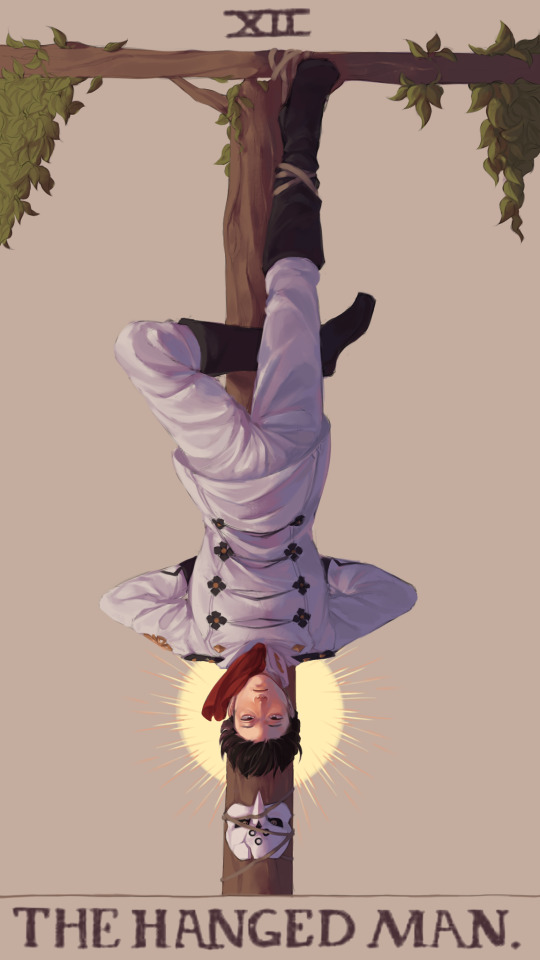
assigning tarot cards to dgs characters is fun
(flipped version below)
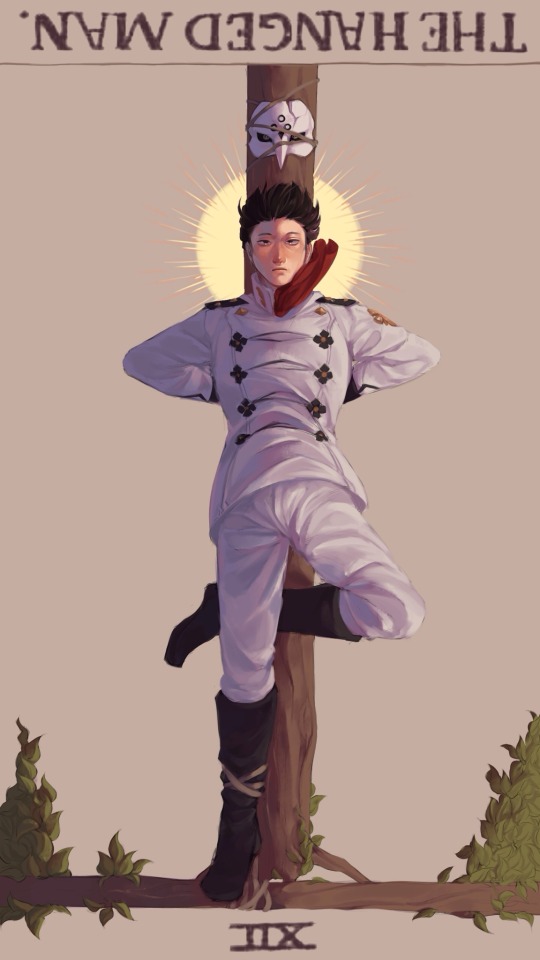
#my art#the great ace attorney#dai gyakuten saiban#tgaa#dgs#kazuma asogi#kazuma asougi#dgs spoilers#dgs2 spoilers#highly recommend looking it up if youre interested!!#the hanged man can mean anything from new perspectives to abrupt change to indecision which i thought worked here
456 notes
·
View notes
Photo
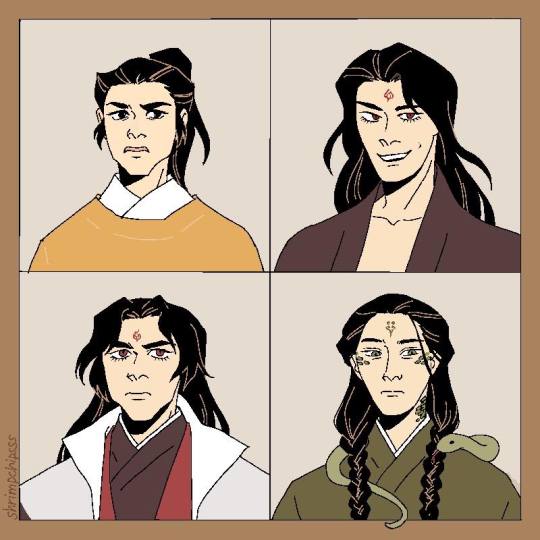
to take after
#i wanted to chart out the way they'd all look relative to one another#especially with how lbh is basically copy+paste transposed sxy#'but with tlj's eyes' which i'm just giving them both thick lower lashes#but ALSO CONSIDER a zzl who resembles tlj#which has haunted my brain since reading ao3 user postcardorigami's zzl and tlj fic#zzl enjoyers you will have a great time highly recommend#zzl#tlj#sxy#luo binghe#zhuzhi-lang#svsss#su xiyan#lbh#scum villain#tianlang-jun
725 notes
·
View notes
Text

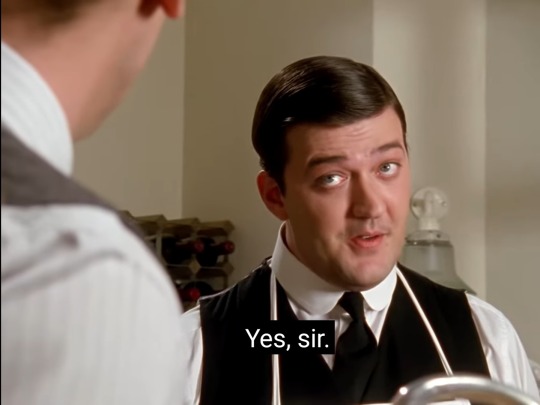
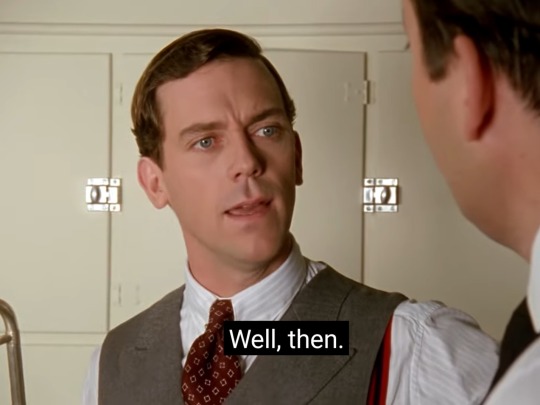

can't believe they good omens'd us
#great episode. fucking lost it though#sorry for the ugly youtube subtitles i couldnt be bothered to make my own captions#and im well aware that im posting into the void#very sorry mutuals and followers but youll have to ignore my jeeves and wooster posts until im finished watching#unless... you want to watch it too#which i highly recommend#jeeves and wooster#OH MY GOD I THOUGHT OF SOMETHING#“do you hear that?“ “i can‘t hear anything over the sound of you playing the trombone sir.“ “that‘s the point. no nightingales.“
133 notes
·
View notes
Text
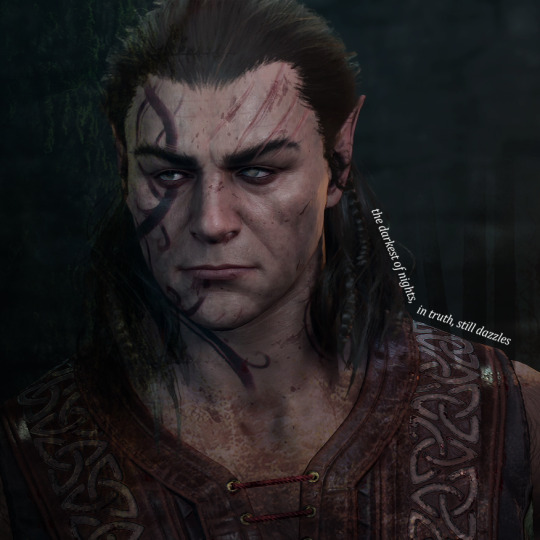
the darkest of nights, in truth, still dazzles.
a halsin fanmix [listen]
01. Heart of Spring - david arkenstone | 02. Cé Hé Mise Le Ulaingt? / The Two Trees - loreena mckennit | 03. Pussywillows, Cat-tails - gordon lightfoot | 04. Maybe Tomorrow - f&m | 05. Don't Stop Me Now - queen | 06. I Was Born Under a Wand'rin' Star - bryn terfel | 07. A Tenuous Bond - derek duke | 08. Closer - nine inch nails | 09. Into the Darkness - jeremy soule | 10. Colorblind - counting crows | 11. Natural Light - ludovico einaudi | 12. Under the Greenwood Tree - royal shakespeare company | 13. The Grove - bear mccreary | 14. Blood Upon the Snow - hozier & bear mccreary | 15. A Quiet Darkness - houses | 16. Spellplague - alderfall | 17. Empty Chairs at Empty Tables - jonathan antoine | 18. Only Everyone Can Judge Me - crywank | 19. Blue Skies - kathryn calder | 20. The Buzzard - old blind dogs | 21. Constant Craving - k.d. lang | 22. The Cave - mumford and sons | 23. Jim Cain - bill callahan | 24. I Won't Back Down - johnny cash | 25. The Ash Grove - laura wright | 26. The Wind - yusuf/cat stevens | 27. To Someone From A Warm Climate (Uiscefhuarithe) - hozier | 28. The Logical Song - supertramp | 29. Tapestry - don mclean | 30. Big Yellow Taxi - joni mitchell | 31. Eat Your Young (Bekon's Choral Version) - hozier | 32. The Flock - david maxxim micic | 33. Changes - david bowie | 34. Ri Na Cruinne - clanaad | 35. The Moments of Happiness - ken page | 36. My Back Pages - the byrds | 37. If This Journey - tom hanford | 38. Turn! Turn! Turn! (To Everything There is a Season) - Live - pete seeger
#BG3 Musing#BG3 Fanmix#Halsin BG3#Halsin#Halsin Posting#my fanmix#i give up this is about as done as it will ever be - i've been talking about this enough i need to get it away from me#i could have made at least one or two other playlists with the number of songs i cut from this#there were some things that hurt me to cut but i figured others had them in their playlists so they're out there#(the impossible dream you will always be famous i am so sorry :(()#i had three goals with this 1. make it more of a timeline in that it follows a narrative order (which hopefully is easy enough to follow)#(it makes sense to me about as much as it is ever going to lol)#2. try to avoid using songs that other individuals have used in their playlists (with a handful of exceptions - i highly encourage you also#take a listen to the others around! lots of good stuff and i figured if you were missing it from this one you can find another with it)#(and if i did use one the context might be different#'closer here is being used in a different way than i usually see it - it's putting more emphasis on the 'you can have my isolation' bit use#in context of the matron and patron for example)#and 3. focus as much as possible on non-romance path elements of halsin's character - i.e. again that's a topic that is highly explored#in other fanmixes to great success - this one is about the childhood he references and the adventures and the capture in the underdark#and the shadow curse and the burying of people he loved and the uptaking of the archdruid position and the healing he did#and possibly did not do#and the radicalization he comes into when his goals are met and he's faced with injustices#and the struggle he has of redefining himself and figuring out who he is after all of it#hopefully the 'eras' are clearly defined but hey it's all gravy from here#honestly if there is one song to listen to that encapsulates halsin for me it's tapestry - highly recommend that#anyway i am blabbing - let the lyrics and such talk for themselves jemi please#but if fanmixes aren't your speed have a kinda nice edit i guess#edit: now with bonus song i just had to add after shamefully forgetting it
31 notes
·
View notes
Text
The Batman (2022) isn't perfect by any means, but it is still a phenomenal film and one of the best pieces of Bat-media in recent memory.
Firstly, the aesthetic. Seemingly small but an incredibly important part. BTAS was broody, '89 was gothic, Forever was campy, TDK was... bad. And TB I think finds a real sweet spot in between vibes. It's dark, serious, it's got a technological noir, and yet still has vibrancy and color and (the key to my heart) neon.
One scene, you'll be sitting in an abandoned tunnel with shadows and muddy colors, the next you'll be surrounded by police under white lights, and the next you'll be in a night club with LEDs of every color you can think.
The fights. This film has some of the best Batman fights I've ever seen period. Really just action in general. The night club, the hallway, the finale. It's not like TDK where every fight is slow, precise, methodical, and honestly boring. Each fight or chase here is energetic and entertaining. The choreography is excellent, the stakes are legitimately high, and the settings are always unique.
The night club is crowded and overwhelming, with people swinging, shouting, and grabbing at Bats who aren't even apart of the fight. His skills and equipment save his life multiple times, whether it's block a bullet with a precise pipe throw or survive a shotgun blast with his armor. When he finally grabs Penguin you feel as overwhelmed and animalistic as he does.
The precinct escape is tight and tense. From the punch to the jump, every second makes you feel the absolute abominable stress of trying to escape a building like this. Officers pouring out of every room, bullets whizzing by and beaming off his suit. Merely seconds to get the flight suit on before they come pouring out to the roof. We experience the fall with him as his nerves spike, all culminating in a quick second decision that ends with him crashing into the side of the road.
Gotham. The beloved city feels full here. Subways are crowded, streets are packed. The crime feels real. Vandals, gang violence, thieves, assassins, crime families. It's not just militants and killers. We see the systemic issues in place that cause these. We see the feelings and social strains that make people do this. It's like you're taking a peak into another world with context and history you don't know but understand. It feels right.
The characterizations. I'm not a huge fan of the whole "Bruce Wayne is the mask, Batman is the real you" thing inflamed by TDK. And I really don't like "the Waynes were corrupt and did bad things, even for good reasons".
I think there's so much more to say about the two very different, very real sides to Bruce's personality. The one that comes out as billionaire playboy philanthropist, and the one that comes out as a violent and vengeful demon. Both who are willing to suffer for their causes. And I think there's so much more when the Waynes die from a mugging. That the crime is so bad it took the highest. That it could take anyone at any time, even the beloved elite.
However it does something right that most other Bat-media fails at. It makes Batman a symbol of hope. It demonstrates a growth in himself. That he can do more good to inspire the people than to instill fear in them.
Pandaredd made a good video on this, but in Crisis On Two Earths, Bats' opposite is represented as the ultimate nihilist. This means that at his core, Batman is really the ultimate optimist. And that makes sense. You don't put on a suit and fight crime, you don't try to create resources to help people, you don't befriend and reform your own Rogues gallery unless you believe you can change something. That all the work you do, all the suffering you experience will be worth it when you get to know the world healed.
And that's something The Batman understands. Batman started as a symbol of fear. So that every criminal hesitates at an alley. Panics at a shadow. But he became something else. A symbol of optimism. So that people can walk the streets at night. That they can get the help they need. That they can look into the sky with hope.
#i mean dude literally has a candy pouch on his tool belt. he's just the friendly neighborhood nightmare demon#amywho go watch The Long Halloween. it has good morally-iffy Waynes and a near perfect Two Face#batman#the batman#battinson#robert pattinson#gotham#gotham city#bruce wayne#the batman 2022#i actually don't really like zodiac Riddler but i can excuse it for this film. i much prefer flamboyant twink Riddler#theres a cool animatic of “Good Songs Never Die” which has scary batman and a unique Riddler. highly recommend it#iceberg lounge#movies#films#i despise The Dark Knight in case it wasn't obvious#I'll probably make a video about the trilogy someday but nearly everything about those films are just WRONG#they are great movies ig but absolutely trash batman films that an entire generation of fans modeled their perception off of#batman fandom#now all I'm saying is maybe one day we'll get harlivy in something outside of the comics or HQ show#lord knows James gunn isn't gonna give it to us
32 notes
·
View notes
Text
not going to lie, the scene that worked the most for me in Polite Society (2023) is after the younger sister has broken Evil's nefarious hold on her older sister---she's driving them both away afterwards, giddy with triumph and talking about how sure, big sister has dropped out of art school but she has all these plans to help with her sister's next step, and---
and, mildly, big sister says: I need to think about it first.
she very quickly reroutes the conversation into fries, their togetherness, and younger sister's own goals, but I liked that moment. Where it's acknowledged even briefly that big sister is not 100% liberated by the defeat of her splashy, action film enemies; that actually, her doubts and concerns are personal and have nothing to do with her mother's plans or her sister's projections or even her boyfriend-slash-fiancee-slash-worse.
Again, not a huge moment, it's not the point of the film really; I liked it very much anyway.
#one of those moments where you go ''oh I have definitely been privy to the conversation here''#different words and different dynamics but. yeah. definitely.#I tried to keep this vague so that you too can enjoy the experience of the movie - which is great! highly recommended!#I'm just still thinking about this moment.#a proscenium for our dreams
112 notes
·
View notes
Photo

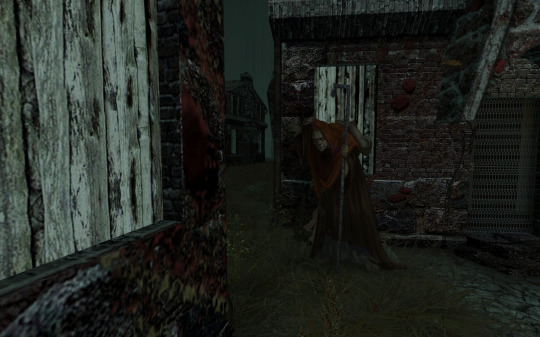

tervis (oc) sightings
/ id: three screenshots from the video game pathologic. tervis, a hunched figure wearing long hooded robes and carrying a walking staff, has been digitally painted into each scene. the first shows tervis crouching on a metal walkway between two buildings in the factory district. the second shows tervis with their hand pressed against an infected house, looking balefully out into the night. the third shows tervis sitting against the wall of the railway station, observing the trains. end id. /
#artwork#pathologic#tervis#it is my terv...........my tervy.............my tervlet#ive been having so much fun doing these :-D highly recommend if you have an oc and some screenshots to stick them in it is so rewarding#ive changed around a few things re patho tervis i formerly said she lives in the steppe but now ive decided shes got a nest in the factory#district somewhere. makes a lot more sense for him i think#ive also changed his staff it used to be a wooden one but ive changed it into a bit of rebar which shes bent into a hook shape at the top#he uses it for pulling himself up onto things. hes got every physical problem imaginable but hes a weirdly strong little guy#it's my attempt to replicate the creepiness of 40k tervis swarming up walls and scuttling around in the vents. not quite as unsettling but#it would still look very weird i imagine#anyway i hope you are all doing well my friends i miss you im so sorry i havent been on much recently#well i have been on. im here every day. i never leave. but i havent really said much#mostly because of work and exams and things :-/ im almost finished though!!! a few more weeks and im Fwee......bachelor ned......wahoo :-D#not quite yet though. in the meantime i shall continue to draw tervises with great gusto
90 notes
·
View notes
Note
i've never read Eyeshield 21 but I took one look at this spiky sharp bastard and I've decided that I love him
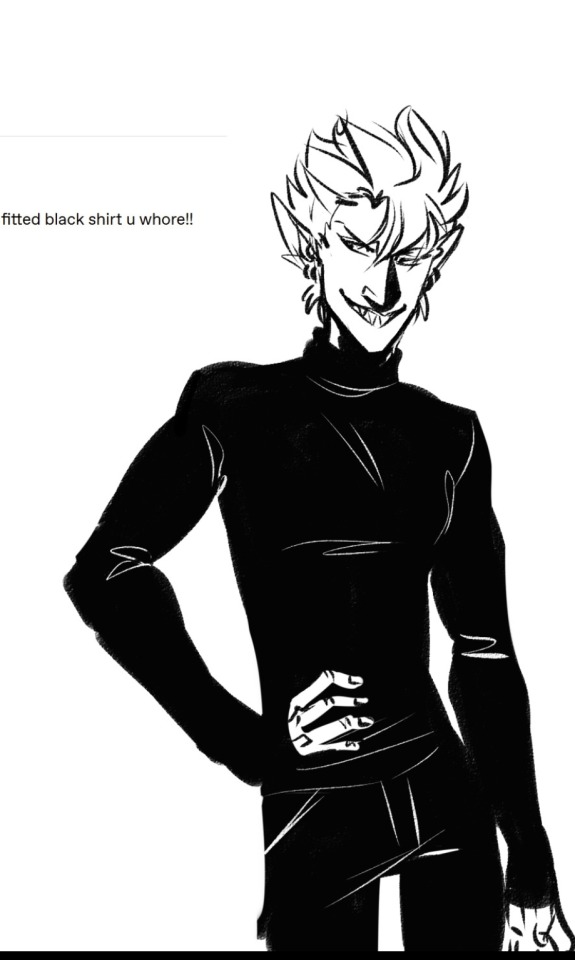
so spiky
AND YOU'RE CORRECT lmao. That's Hiruma Yoichi, he's a menace and I love him. Every manga should have a dangerous weirdo with a book full of blackmail who drives the plot forward by being an absolute crazy person. Eyeshield 21 is a football manga, and he's just out here blackmailing and scheming and being an audacious chaos gremlin.



ALL THE OTHER PEOPLE IN THIS MANGA MIGHT HAVE OUTLANDISH PROPORTIONS OR FEATURES BUT AT LEAST THEY LOOK LIKE HUMANS!! Hiruma why are you like this?!?!
#Eyeshield 21#Hiruma Yoichi#The only part of his appearance that's artificial is the blonde hair which he bleaches and otherwise he just looks like that#anyway highly recommend ES21 it's legit I would say the best sports manga I've ever read#disclaimers: like a lot of sports media from japan it is occasionally very weird about black people hahaaaa QuQ#not in like a negative way in fact very much the opposite but boy there are one or two chapters that i just kind of shake my head through#and tbh the World Cup arc is kind of a weird fever dream of country cliches altho also I find foreign stereotypes of america very funny#other than that it's just a damn good time and a great sports manga full of characters that I still intensely love to this day#Time Stop Magician still makes me hold my breath ahhh the tension.... not that I'm biased because the Shinryuuji match is my all-time fav#(robert downey jr meme voice: they are biased because shinryuuji is their all-time fav)
145 notes
·
View notes
Text
They were supposed to be– No. Something’s wrong.
They’re supposed to be the last hope. The Light’s last argument against the Darkness.
This isn’t supposed to be happening.
In other words, a Shin Malphur in denial over his "end to last rites and final words" drags Drifter down with him. Drifter really really doesn't want to be here nor interact with the Young Wolf, rather fresh into their exile. Shin says Win-Win, Drifter says Lose-Lose.
Important lore bits (ik its weird to have important Canon Lore to an AU but. well im not sane so): Drifter's hallucinations from the Nine, Shin's lorebook to the Young Wolf. Set a bit before Season of the Drifter.
[ao3]
-
“So… What’s all this about?” The Drifter eyes the Hunter across from him, leaning against the decrepit wall and shielded from the dull light overhead. The air is stale and suffocating, and his usually laid-back tone is tense. “Thought you were retiring.”
“You know what this is about,” came the response from a dead voice, though the Drifter couldn’t place if the tone was irritation or some kind of sorrow. “The Guardian. You know the one.”
He braces as he watches Shin Malphur stalk away from the wall, helmeted head still shadowed by his hood. “Still doesn’t tell me why you’re here,” the Drifter says, terse, keeping his ground as the man stares him down through the solid visor.
Maybe Shin wasn’t here on any of that business, but there was, nonetheless, an air around the man. Different from the one he was once so familiar with, but overshadowing all the same.
“Something isn’t right.” There’s a finality to the Dredgen Hunter’s voice that forces his eyes away. Even without looking, he knew Shin had not let up, and wouldn’t until he had whatever answer he wanted.
Drifter sighs, realizing where the conversation must’ve been going. “Ain’t the first to tell me that… And what do you want me to do about it? I doubt they’ll have any interest in this operation.”
From everything he’s… overheard, the Guardian had come off as impulsive to him, yes—But if Shin was right, then any assumptions made from their stunt in the Prison couldn’t be trusted. Even without those, though, they were still dangerous and unpredictable. Especially now—
“Talk to them. Tell me what you think. Disguise it as a helping hand—We both know your games; it wouldn’t be a hard sell.” Shin states, almost nonchalantly. He bristles.
“Do you know what yer asking me? If you’re wrong–”
“I’m not.” The Hunter’s certainty almost forces him to do a double take, and he clenches his jaw.
“–But if you are,” he grits out, “I’m sure you know better than me what they’re capable of. You’ve obviously been watching them, and I’ve only seen what reports I can get my hands on.” Which, in fairness, was a good amount—but there's a difference between watching a video or reading a few paragraphs, and having been there.
He wasn’t going to risk his life for a hunch, least of all one from the Man With The Golden Gun. Drifter trusted that he’d keep his word, and that the man was more than physically capable, but he knew enough unpredictable exiles already to figure it a bad idea.
“Then take some time to watch,” the Hunter insists. Drifter didn’t know what to make of his tone anymore. “You’ll see what I mean when I say there’s something wrong. I thought you’d recognize… some things.”
He opens his mouth to question what that meant, but is cut off by Shin pulling out a data tablet and holding it out to him. Drifter stares at it for a few moments, before gingerly taking it.
“What games you playing at?” He questions, suspicious, switching between eyeing the man and the video. He recognizes the armor of the Young Wolf, and their dead, exhausted movements. Still, nothing out of the usual, aside from the discarded helmet.
“I don’t play games, Hope.” He doesn’t have the chance to object to the name before Shin continues, stiff. “Look closer.”
“What, finally found something to… to…” Drifter begins to sneer, intending to mock his business partner’s caution, before he registers the Guardian’s face. Something about their expression rings a bell in his mind.
“Fear? Not quite.”
It dawns on him that the tone he couldn’t place earlier was… veiled worry, snapping his eyes up from the video.
Shin fucking Malphur, worried he was wrong about someone. That was already strange enough, but he had decided to put his faith in them, without so much as meeting them. Drifter isn’t sure if he should laugh or try to knock some sense into the man, regardless of the harm that would come to himself in doing so.
“We’ve known each for how long, without any more trust than in shared interests?” He pauses, searching Shin’s visor, speechless. The Hunter does not speak, and only gives a tilt of his head. Drifter can imagine him raising a brow at him.
“You’ve suddenly decided you could trust someone, an’ you–” Despite himself, a single, disbelieving laugh escapes him as he struggles over his words. “–You want me to… play therapist? Is that what this is?”
“It’s in your interest, too.” If Shin was bothered by his reaction, it doesn’t show, and Drifter throws his hand up at the simplicity of the statement. What the hell is this?
“If you’re right, sure! But you–”
“You saw their face. I saw the recognition cross yours.”
His jaw slams shut at the interruption and Drifter grits his teeth, before taking a breath and continuing a bit more painstakingly. “Doesn’t mean they didn’t try to kill him, just means they’ve got… other problems. I can only do so much, and only for one of those.”
“That’s enough for me,” Shin states, ever level. Insane, were Drifter asked.
“And who’s to say either of us are right?” He throws his hand out in a sweeping motion, vaguely referring to the whole of the problem. “If we’re both wrong about their state, what then?”
Shin doesn’t respond, helmet tilted towards the long-abandoned bar behind the Drifter. Even unable to see his eyes, not being pinned on the spot by that hidden glare was almost relieving—And would’ve been, if not for the reason.
Drifter can’t help the disbelieving, bordering on manic chuckle that escapes him. “You’re too set on this.”
“Meet them, at least. Tell me what you think after.”
He glares a moment before, “I’m only agreeing to this because you have a good eye. Don’t expect this to be common.”
“You’ll be making a new friend, you’ll live.”
“Better hope so,” he grumbles.
Shin only hums in response, apparently satisfied.
Prick.
#i am so unwell about the lore of this game but im also severely insane#for anyone who doesnt want to click the first link. its literally just to the last page of Letter From a Renegade - Shin's lorebook to#the Guardian/Young Wolf back in Forsaken-era - in the Ishtar Collective#which is where that ''end to last rites and final words'' comes from#I would HIGHLY recommend reading the entire lorebook tho. its so so good and also context to Shin's characterization here#The Forsaken Exile#destiny 2#and for anyone only just seeing anything about TFE and has any interest. that ''him'' they talk about whether or not Wolf tried to kill?#thats not Uldren. thats Cayde.#who IS still alive! just... at this point in the timeline. he's not doin too great#and yeah. yeah you mightve guessed by the name. the Guardian is in exile for supposedly attempting to kill Cayde!!! yippee!#and that Drifter bit of lore at the start is relevant bc. Wolf is Very Haunted. and Drifter *knows* that look#god i love massacring lore.#oh. yeah. uhhhhh ''Hope'' was Drifter's name as a Dredgen. for anyone who didnt pick that one up--
15 notes
·
View notes
Text
#hyperspecific poll#had to edit this on desktop bc my phone no longer lets me edit drafts smh#1- it was for my little pony versions of my friends/acquaintances#2- her name is two letters off from mine. and her middle name is our sister's middle name.#3- learned it in pre-algebra and it fuckin rocks. highly recommend#4- texture :(#5- thaaaaats beetlejuice! speaking of which im a couple weeks away from my 1 year anniversary#6- vermont. my parents got busy after i was born + didnt take me. my older sister got to see it though#7- all of my biological grandparents + my stepmom's mom#8- his name's tom and he's doing great! hes totally blind so we had to force-feed him but now he eats if you touch a mealworm to his lips.#9- thanks keith. i still love virtual riot and pegboard nerds and grant and WRLD and#10- THEYRE SO PRETTY!!! to be fair i think i prefer piano and organ for being able to play chords and stuff but in a group french horn is A
17 notes
·
View notes
Text
There’s a popular sentiment in political discourse that right wing extremist beliefs - shit like Qanon, but also often just like, antisemitism in general - are indicative of mental illness, or that these beliefs are pathological in origin. There are a lot of arguments against this, but a common one I see in progressive spaces is that this is an ableist argument to make (which is a reasonable response!). However, I don’t think this is persuasive enough on its own to convince people to stop framing it as a mental illness thing (or even why it’s ableist to begin with). I also don’t think people fully understand why it’s a factually incorrect claim, even if they know it’s a problematic framing of the issue. And so I want to attempt to give an explanation for why that framework is wrong, and why believing it will lead you to poor conclusions about political beliefs generally.
This is going to be a long post, so it’ll be going under a cut. If anything doesn’t make sense or people want shit clarified feel free to send me an ask/reply etc. This is primarily aimed at people who might know that it’s wrong to call Nazis or Qanon people mentally ill (even jokingly) but don’t understand why. This is not meant to be an exhaustive explanation, but I want to make a strong case for why it’s shitty to talk about ring wing views in this way.
I’m gonna first talk about disability and mental illness, and then talk a little bit about right wing beliefs - the goal here is to fully explain why it’s ableist, and then move into why it’s an incorrect argument more broadly. The primary sources for this discussion will be two books: one called Absent Citizens, which is a book about disability politics in Canada, and a book called The Authoritarian Personality, which is about a massive research project conducted in America after WWII with the aim of understanding the content and origin of fascistic beliefs. This isn’t going to be an academic essay or whatever, but I do want to draw on academic sources to frame this discussion. I think this is a complex topic that involves a lot of complicated shit and I want to hopefully clarify some of the dimensions of this issue.
why this argument sucks
To begin, I want to break down the argument that people who believe absurd things - like bleach as a cure for covid, for example - are mentally ill. There are a lot of hidden assumptions built into that claim that I don’t think people realize are there. I also think people react to and argue against those hidden assumptions, but they still often go unstated in discourse about the topic.
You often see this claim made against celebrities - Kanye is the most recent example, but Trump is a really common one too. And whatever actual diagnosed mental health issues they have, I’m going to set those aside for the moment, because I don’t think that popular discourse about them being mentally ill is actually about their specific, diagnosed mental illnesses. Kanye would still be antisemitic even if he did not have BPD, but the fact that he does have BPD provides people with a very handy rationalization to explain his horrific views. And if he didn’t have any diagnosed mental illnesses, I doubt that would stop people from claiming he’s mentally ill anyway (which I’ll talk about later).
So, this argument has a couple different assumptions built into it. First, it takes for granted the idea that there is a social and political orthodoxy which is normal, and to fall outside of that orthodoxy means your beliefs are pathological. Views deemed sensible and reasonable (generally centre right to centre left) are equated with mental well-being, and views that are deemed unreasonable are equated with mental illness. What this does is medicalize all political beliefs. Sufficient deviance from the societal norm is therefore a sign of mental instability.
What this also does is medicalize mental illness, which is to say it individualizes it. To make the claim that absurd or dangerous political views are a sign of mental illness is to make the argument that the origins of these views come from an individual, medical deficiency within a person. It ignores the social, economic, cultural, and historical circumstances for why someone may come to believe right wing conspiracy theories (I will explain this in more detail a bit later, so just bracket this for now).
And if you frame the problem of right wing conspiracy in this way, it informs political solutions for how to get rid of these conspiratorial views in society - if antisemitism is a mental illness, then mandated mental health tests that measure political deviancy, or the invention of new mental health diagnoses for right wing extremism, would be a viable solution, right? To take this claim seriously, it would mean inventing a new class of disability, a new type of pathologized person. And once you’ve created this category and placed people into it, what do you do with them? If their beliefs are a matter of neurological deficiency, does that mean they are incapable of being de-radicalized? Should they be put on special medication? Are they even responsible for their own beliefs if there is something wrong with their brain?
And like, this line of argumentation is bad! It’s a defeatist attitude (some people are just bad and there is nothing to be done about it), it makes political beliefs biological (some people are inherently good and others inherently bad), it ignores broader forces that may lead to someone believing these things, and it prescribes policy solutions that are eugenic in nature. If we just get rid of all the bad mentally ill people, society will be fixed. Which means we are now in a very similar political position to right wing beliefs about trans people, jewish people, people of colour, and, of course, disabled people.
The second issue is that it equates “normal” political views with mental fitness, which is often a (hidden) shorthand for moral fitness. This creates a view of society as something that is naturally good, a moral yardstick to measure everyone else by. People with absurd beliefs that shock the public are just not following the rules that will make them a good person. It leaves no room for a critique of those societal norms. Is the current political orthodoxy good? Is it a good yardstick to measure other people by? Is the current state of the world a morally and socially healthy society? What if you think it isn’t? Does that make you mentally ill too?
disability & mental health
I remember right after the 2016 American election there was a very intense focus in the media on Trump being mentally ill. He was charged with infecting the body politic with his mental instability. What this did was place him outside of history, positioning him as an alien invader on an otherwise healthy society. It did not account for the social and economic forces that led to him becoming a key political figure in American politics. It was an abdication of responsibility from mostly liberal people who did not want to confront the problems in society that existed far before Trump got into power, and indeed, allowed him to get there. If you could prove Trump was mentally ill, then that would mean the problem was just that - illness. So, to go back to an earlier point, when people point to Kanye’s bipolar disorder as a reason for his antisemitism, they are not making a medical diagnosis; they are removing his political beliefs from public discourse and placing them in the realm of mental pathology. It is a refusal to meet his beliefs as they exist, and instead insist that they exist outside of society. It also robs him of agency. Something outside of his control is making him do this; you can’t really blame him. It frames bigotry as something a person does without their knowledge or even consent. This external problem is to blame.
And finally, to synthesize these points, the idea that right wing bigotry is a symptom of of mental illness is making the argument that mental illness, and disability more broadly, are medical in nature. This is also a problem! Disability has for decades been seen by activists and academics alike as something that is not biological, or at least not completely. Since around the 70s or 80s, disability activism began pushing the social model of disability, which was in direct opposition to the biological (or medical) model of disability. The social model argues that disability is the product of an unfair and discriminatory society. Disabled people are not biologically broken; society purposefully excludes them.
I think a really instructive example to use to illustrate this is the built environment. Staircases are not naturally occurring phenomena; human societies build them, and there are certain assumptions that go into building stairs as opposed to ramps, or tiered walkways, or other configurations. The inability to climb a set of stairs does not indicate a biological deficit in a human being, the social model argues; it indicates that society is building a world that excludes disabled people from fully participating in it. Framing it this way, the solution to the problem isn’t to force everyone to use the stairs, it is to alter the environment so that it is accessible to everyone. Disability can either be exacerbated or minimized through social change. In the same way, there are a lot of social norms that exclude certain groups of people. Autistic people for example can find a lot of social norms to be confusing and difficult to navigate. It’s worth considering whether these social norms are useful to everyone, and whether it would be better to alter them the same way we might want to alter a staircase to include more people in public life. It’s not that these people are broken or incorrect, it’s that historical institutions, from social values to urban architecture, prescribe certain modes of travel, certain social relationships, that can be more or less harmful to certain groups of people. The same critiques can be made through a feminist lens, or an anti-racist one. What the social model of disability does is introduce the idea of disability as a social category, one that is not a biological destiny but a historically contingent position in society that can be improved through social change.
And more broadly, mental illness has a similar disadvantage. It’s framed as a medical issue, a problem that arises within individual people. Society isn’t the cause of social dysfunction, or depression, or personality disorders; your brain is just broken, and you need to learn how to fit into society better.
And so going back to the original claim, what you’re doing when you make that argument is A) medicalizing political beliefs, and B) accepting that an individualized medical view of mental illness is inherently correct and useful for understanding political conflict.
So that’s one reason why this framework is harmful. It also leads into the other major reason why this view is harmful - it prevents a structural analysis of right wing beliefs. If Kanye West’s antisemitism is a manifestation of his mental illness, this means that antisemitism is itself a medical condition. It comes from nowhere, or to be more charitable, it’s someone pathologically indulging in bigotry. In this framework, the source of the bigotry isn’t the problem; the person being too extreme about it is.
fascism
I’m going to talk about fascism now in a more theoretical way. I think even if you’re on board with everything I’ve said up to this point, it’s still hard to watch someone say something completely absurd and not think there is something mentally wrong with them. Like, who the fuck actually believes that giving your kids bleach or horse heart de-wormer will cure covid? How can bigots keep making claims about jewish people or trans people that are easily proven false every single time? You have to be mentally ill in some way to ignore reality that hard, right? But I want to caution people against framing this as mental illness, even if it’s difficult to find another explanation.
Fascism is a product of history. What I mean by this is that fascism is a response to large social forces, and when fascist movements are successful, they reinforce a lot of those existing social forces. Fascism often takes the form of political ambitions, such as the desire to take over a democratic government, but it goes deeper than that. In The Authoritarian Personality, Adorno (one of the authors) makes the argument that fascism is a particular response people have to the contradictions of capitalism - those contradictions being that you are supposedly this free agent able to make your own choices, yet are constantly crushed under the weight of the ruling class. Human beings are told they are free and yet are constantly alienated from other people as a result of class conflict. The book explores this claim at multiple scales, down to the level of individual families all the way up to society as a whole. We know, for example, that children in abusive households sometimes become abusive people themselves. Not always, or even often, but they sometimes do. Abuse also causes a lot of other, non-abusive social and emotional problems for children who grow up in these environments, often following them into adulthood. This is a particularly horrific environment that people respond in different ways to, and it produces a wide range of issues that people have to grapple with for the rest of their lives. In the same way, harmful societal forces illicit different responses in people, and sometimes, that response is a turn towards fascism.
Adorno describes fascism as an ideology of irrationality. A fascist is someone who embraces the contradictions of capitalism and makes contradiction a core component of their belief system. Or rather, fascism is a belief system that fully accommodates contradiction because of its irrational character. Fascism is often difficult to describe precisely because of this irrationality - in order to make sense of it you need to place it in a rational context, which runs the risk of over-intellectualizing or rationalizing it. This even came up in the methodology section of the book. The researchers couldn’t go around asking people if they were racist or antisemitic, for example, because a bunch of people would say no, even if they were explicitly racist and antisemitic people. In several of the interviews the researchers did, fascistic people would assert that they were not racist and then, in the literal next sentence, would say something horribly racist. And they found that fascistic people would repeat this pattern for many areas of their lives - deny a behaviour, even a trivial one, and then do that exact behaviour a few minutes later. This contradiction is so deeply embedded that it makes investigating what fascists actually believe difficult.
However, to try to give a broad overview, fascism is a singular fixation with power. The way power is distributed in society is along in-group/out-group lines. If you are part of the in-group (white, Christian, able-bodied, cishet, etc) you are deserving of power; if you’re not, then you must be dominated or destroyed. In order to realize this goal of white supremacist power, any belief or behaviour that will further this goal is advantageous, regardless of how truthful it is. This is part of the reason why a lot of right wing conspiracies sound so ridiculous - truth is not a quality that is valuable to them because it could interfere with the pursuit of power. In this framework, Qanon people asserting that ivermectin will cure covid are not making a factual medical claim; what they are doing is saying that the medical establishment cannot be trusted, that a deadly disease killing millions of people can be stopped with an over the counter remedy. Because if covid isn’t real, or is as mild as a seasonal flu, then the current government in power is making illegitimate demands on people to socially distance and wear masks, and therefore the only moral response is to overthrow them and install someone who will stop making those demands. You have to view all right wing conspiratorial claims not as factual but as strategic; you need to evaluate their claims based on what the proposed solution to the problem they’re presenting you with will be. If they’re claiming trans people are grooming children or assaulting people in bathrooms, then the obvious policy response is to bar trans people from any space that contains children or public bathrooms (ie, all public spaces). If Jewish people have undue influence in government, the obvious response is to remove all Jewish people from positions of power. And these are short term solutions - if these minorities are so disgusting that you need to shut them out of public life, the only real solution is to get rid of them entirely. It doesn’t matter that these accusations are demonstrably false; they are “true” to a fascist because they further their political and ideological goals. They have to be true for their power to be realized, and so by virtue of that they are effectively true to a fascist. (This is also why disproving their claims with facts don’t work; they aren’t interested in the truth of any of their claims, because truth is not something they value in their vision of society).
And they don’t even need to be dyed in the wool explicit fascists to be saying this shit! A good portion of this discussion has been about hidden assumptions in discourse. I do things without realizing the full consequences of my behaviour sometimes. Sometimes I don’t even know I’m “doing” something at all because it’s so embedded and normalized in society that it feels natural. I try to catch myself as much as I can to make sure I’m not doing something harmful, but everyone does it. Fascists are just as capable of this. And like, racism and bigotry are part of normal everyday society. The dedicated well-read fascists who know what they’re doing and the shallow incurious racists who just want to be assholes both peddle the same shit and it does the same harm; doing it unintentionally doesn’t make you mentally ill, and being mentally ill doesn’t mean you’re being racist through some kind of medical accident. These people are enacting their political beliefs through their words and behaviour, whether they know the full scope of those beliefs or not, and you should not diminish that agency by arguing that they’re misguided mentally ill people.
It’s also part of the reason why they will deny charges of bigotry. They aren’t necessarily lying to themselves, but they are attempting to exclude types of discourse that would harm their political goals. I’m not racist because racism is bad and what I want isn’t bad. I’m not racist because racism is undue bigotry against racial minorities and mine is fully justified. You can’t trust what they say, but you can trust their intentions, and their intentions are bad.
This post is extremely long already so I’ll wrap it up here. When you see people making outlandish, false, ridiculous claims about a minority group, remember that these people are not expressing mental illness. They are expressing dangerous political views and need to be shut down for political reasons. The status of their mental health is not relevant to solving the problem of bigotry. Laying the blame at the feet of mental illness is an error of both scope and origin; bigotry does not come from illness, it comes from a desire for power, and that is the thing that needs to be stopped.
#book club#erm. hope this makes sense lol#absent citizens is a great book btw highly recommend it even if you are not canadian#it goes into detail about how disability discourse is linked with neoliberalism which I didn’t get into here#but neoliberalism is a huge component of this so. worth checking out
112 notes
·
View notes
Text
Listening to a podcast earlier about archaeology's relationship to social media and they made some really great points but it was so fucking funny hearing them talk about "the rise and fall of tumblr" because archaeoblr is THRIVING and one of my favourite corners of the internet
#archaeology#for anyone wondering it was the go dig a hole podcast which is a great podcast I highly recommend it
86 notes
·
View notes
Text

Got these guys for christmassss!!! Still working out names for everyone but the millennium furbyyyy if I can muster up the energy I’ll get some picture with my at least my long bois by the treeee no promises though I’m a tired man
#furblr#furby community#furby fandom#safe furby#all furby#2023 furby#millennium furby#I actually enjoy having the 2023 furby on thoouuugh which is so cool like when I get past the whole being kinda old to play with furby part#it’s a great time#god the copy cat feature I highly recommend it it’s easily cursed#space cadet voice >>>#god I can’t wait to accessorize them#might customize them a bit but I gotta get to know them first a little I think#usually taking pictures of them help me figure out the vibe#so those should come at some pointtt#maybe#f: sorority#Dmitrius Boycolor#Cumulus Panacea The Gaseous Light
12 notes
·
View notes
Text
ok ok but if you play the pronoun switch game with foolish one
just imagine she's singing to a girl who is maybe confused or questioning or scared or just really affectionate and has love for taylor but doesn't know what to do with that, and taylor is hoping and waiting for her to call it what it is but the girl ends up with a boyfriend and taylor is left there gutted and confused
taylor wants to be the exception for this girl
she wants her to confess
"don't know what to call this situation"
and it's delicate (hayley k told everyone that delicate is for the gays)
cause when her head is on her shoulder (wouldn't it be more natural for a girl to put her head on her friend's shoulder like that in the 2000s if the friend were a girl?)
imagining them together when they're older laughing about young gay panic and awkward confusing sapphic feelings
but she finally admits that she hasn't let herself see the signs that this girl is not going to get into a real romantic relationship with another girl
because she has a boy on her arm and taylor in the wings, giving taylor longing glances but she'll take his ring
and maybe she did have the best of intentions
but these feelings are confusing and scary and difficult
and when it's all said and done, she just wasn't the one to be able to love taylor fully and openly
#ITS SAPPHIC#THIS IS A SAPPHIC EXPERIENCE#I AM TELLING YOU#💔#jill gutowitz had a great essay about a confusing heartbreaking relationship kind of like this in her book#which i highly highly recommend#gaylor#gaylor swift#speak now tv
31 notes
·
View notes
Text
Ive been thinking about taking care of my parents lately. I feel like thats one of the definitive signs of getting old for me; that casual, yet prolonged flip of roles from parent to child, from care taker to care taken. I see it on the horizon like a comet headed towards me; inevitable, ever looming closer
All this preamble to say that this actual play podcast that im listening to with a scene where a character is taking care of her old parent-figure as the parent figure is slowly dying in bed and how the parent figure cant eat more than a few bites of the porridge that the pc has brought to her is getting to me
#the podcast is Worlds Beyond Number which i woulf highly recommend if you like elaborate rich fantasy stories told/performed by veteran#actors/actual players like Brennan Lee Mulligan Erika Ishii Aabria Iyengar and Lou Wilson#with some great sound design and music by Taylor Moore who I know primarily from another actual play podcast fun city#i fell off of it but that ones pretty good too#im queueing this for tomorrow so it actually falls on#audio drama sunday#common sayings#ask to tag
12 notes
·
View notes
Text
when i drop a bunch of drabbles over the next few days no one complain about me spammin their feed because i’m on a writing roll 😤
#i’ve done nothing but write today which compared to how i’ve been feeling over the past few months this is amazing great spectacular#highly rec finding a random generator you can customize and putting characters’ names in it and writing for whoever you get for 30mins#bonus points if you find a smutty prompt generator online and use that to help set the scene / give context#like it’s fun and it’s making me write fast and easily because it’s fun and there’s no pressure#highly highly recommend#+ it’s good to write for different characters once in a while#it keeps things feeling fresh i think#with that said pedro girlies y’all gonna be eating good this week#also possibly (if there are any) john wick girlies and ben solo perhaps??? maybe#and a touch of top gun baddies through in there yep yep#here laur goes again..
29 notes
·
View notes